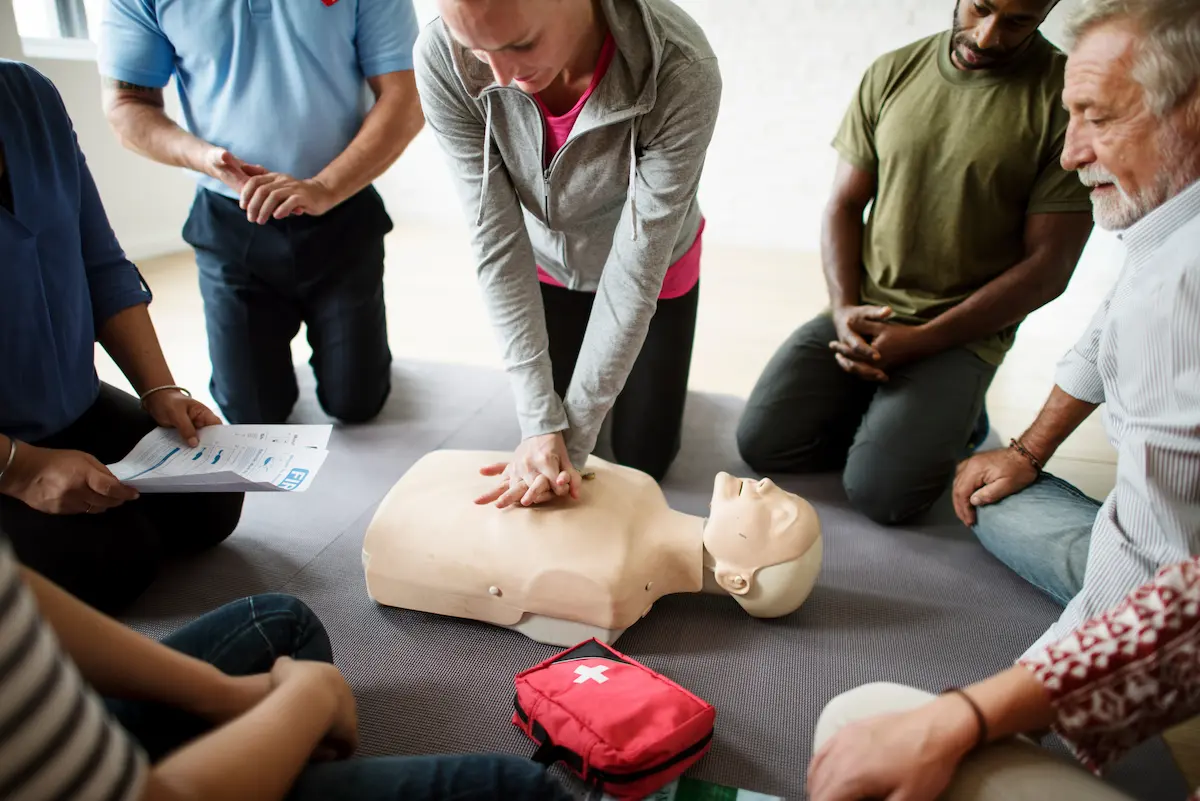Have you ever thought about what it might be like to travel to different states as a nurse and not have to deal with getting several different licenses to practice? Thanks to the Nurse Licensure Compact (NLC), nurses can practice across state lines without having to apply for multiple licenses. This blog will give you a better understanding of the benefits of a compact state nursing license, which states are eNLC states, eNLC requirements, and more. Let's take a closer look at what a compact nursing license in and how to apply for one.
Table of contents
- What is a compact state nursing license?
- What are the benefits of a compact state nursing license?
- What are compact nursing states?
- Compact state nursing license requirements
- How to apply for a compact nursing license
- Compact nurse license application FAQs
- Quick compact nursing license facts
What is a compact state nursing license?
A compact state nursing license allows nurses to practice across participating states without needing a state-specific license. This agreement, now called the Enhanced Nursing Licensure Compact (eNLC), allows you to hold a single-state license or a compact state license (also known as a “multistate license”).
For a nurse’s license to be valid under the eNLC, it must be issued by a participating state. Some participating states have additional requirements, so it’s important to check with the state board of nursing (BON) before traveling across state lines for work. For more information regarding this rule change, please visit www.nursecompact.com.
What are the benefits of a compact nursing license?
Convenience: The biggest benefit of the eNLC as a travel nurse is convenience. When you have a multi-state license, you don’t have to spend extra time filling out paperwork and applying for individual state licenses in each place you want to work.
Reduced spending on fees: When you apply for a single-state license, fees are often associated not only with the application, but with the actual license as well. When you have a multi-state license, you don’t have to worry about wasting your time and money when you want to work in a different state than the one you live in.
Improved care: Another added benefit is that it makes it quicker for hospitals and medical facilities to hire qualified personnel from out-of-state locations. This agreement has resulted in better access to quality healthcare professionals across all member states, making it highly beneficial for both patients and healthcare providers.
Enhanced uniformity across states: eNLCs create uniformity across all participating states’ nursing regulations by setting certain standards that all states adhere to. This ensures that all members are held accountable no matter which state they happen to be working in.
What are compact nursing states?

eNLC States
|
Alabama |
Maine |
Pennsylvania |
|
Arizona |
Maryland |
Rhode Island |
|
Arkansas |
Mississippi |
South Carolina |
|
Colorado |
Missouri |
South Dakota |
|
Delaware |
Montana |
Tennessee |
|
Florida |
Nebraska |
Texas |
|
Georgia |
New Hampshire |
Utah |
|
Idaho |
New Jersey |
Vermont |
|
Indiana |
New Mexico |
Virginia |
|
Iowa |
North Carolina |
West Virginia |
|
Kansas |
North Dakota |
Washington |
|
Kentucky |
Ohio |
Wisconsin |
|
Louisiana |
Oklahoma |
Wyoming |
States with partial implementation
When states have partial implementation of the eNLC, it means that nurses with compact state licenses from other participating states can practice in that state. However, nurses who are residents in partially implemented states can't yet apply for compact state licenses. This is because you can’t apply for and obtain your compact state licenses unless you live in a participating state.
- Guam
NLC enacted and awaiting implementation
- Connecticut
- Massachusetts
- U.S. Virgin Islands
States with pending eNLC legislation
Several states are currently in the process of joining the eNLC but need pending legislation to pass before they can become a compact nursing state. The following states have pending legislation:
- Alaska
- Hawaii
- Illinois
- Minnesota
- New York
- Washington D.C.
- Michigan
- Nevada
- Oregon
California is not a compact state and does not currently have any pending legislation to join the eNLC.
Land your next interview with our helpful tips
Read our blog to discover common nursing interview questions and answers, preparation tips, and more.
-1.jpeg)
Compact state nursing license requirements
Nurses interested in getting their compact state nursing license will need to meet the following uniform licensure requirements:
- Meet your home state’s licensure requirements
- Graduated from a board-approved program or graduated from an accredited international education program
- Passed an English proficiency exam (only applies to graduates of an international program not taught in English)
- Passed the NCLEX-RN or NCLEX-PN
- Hold an active license or be eligible to hold one without active discipline
- Submitted your fingerprint for a background check
- Has not faced any criminal charges or been convicted
- Has no convictions in relation to the nursing field
- Is not currently participating in a different program
- Is required to disclose if they are in a different program
- Has a valid Social Security Number in the United States
How to apply for a compact nursing license
- If you meet the uniform licensing requirements and want to apply for a compact nursing license, you’ll need to do so through your state’s board of nursing. To access your state’s board of nursing website, visit the NLC website and select your state.
- Once there, fill out your personal information and the BON will review your application.
- You’ll then be notified if your application is approved or not. If you have questions about your application status, application fees, etc., feel free to contact your BON.
Compact nurse license application FAQs
Where can I apply for a compact nurse license?
To apply for your license, you can visit the NLC website and fill out an application through your BON. To get started, simply select your state in the drop-down menu and go from there.
Can I still get a compact license if I don’t live in a compact state?
No, to get a multistate license, you need to have declared residency in a compact state.
How can I tell if I have a compact nursing license or not?
To check if you have a single or multi-state license, you can visit the NCSBN website to confirm. Some people automatically assume they have a compact license if they applied for their state’s license while living in a compact state.
What is the application fee?
The fee to get your license varies by state. To check your state’s fee, you can check your board of nursing website.
Can I transfer my license if I move to another compact state?
Yes, if you move from one compact state to another compact state, you’ll want to apply for licensure by an endorsement through your new state’s BON.
How can I transfer my license if I move to a non-compact state?
To continue working with your current license, you’ll need to apply for licensure by endorsement. Next, you need to apply for licensure in your new residential state. This will then convert your multi-state license to a single-state license. If you want to work in a different state from your residential state, you’ll need to apply for a single-state license there as well.





